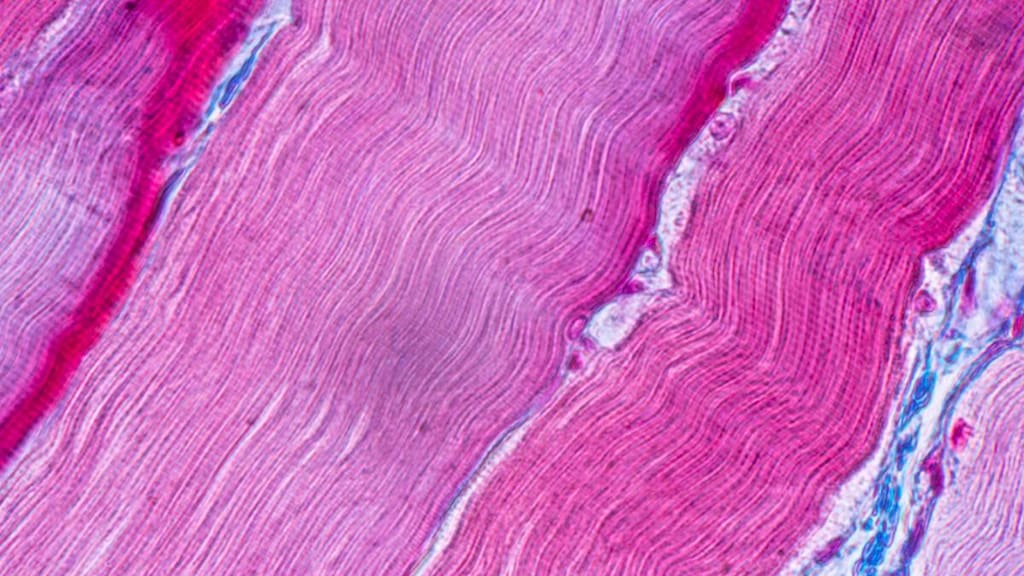
What is myopathy?
Myopathy is a term used to describe muscle damage or dysfunction, and there are many different causes.
What causes myopathy?
Muscles are composed of protein filaments of actin and myosin and other structural components that slide past one another, producing a contraction that changes both the length and the shape of the muscle cell. If any of these components are defective it may cause myopathy.
Causes of myopathy are varied and include any condition that causes dysfunction of the muscle fibers leading to muscle weakness. Causes are usually grouped into those that are inherited, and those that are acquired.
Examples of inherited causes include:
- Congenital myopathy: These are rare muscle diseases present at birth, symptoms include skeletal and facial abnormalities and developmental delays in muscle skills
- Glycogen-storage disease of muscle: Caused by mutations in the genes that control enzymes that metabolize glycogen and glucose
- Mitochondrial myopathies: Caused by genetic abnormalities in mitochondria which are the parts of a cell that control energy
- Muscular dystrophy: A group of muscle diseases where abnormal genes (mutations) interfere with the production of proteins needed to form healthy muscle
- Myoglobinurias: Caused by disorders in the metabolism of myoglobin, a fuel necessary for muscle work (eg, McArdle syndrome, Tarui disease)
Examples of acquired causes of myopathies include:
- Electrolyte imbalances, such as excessively high or low potassium levels
- Infection such as tetanus or HIV
- Inflammatory or autoimmune myopathies (eg, dermatomyositis and polymyositis)
- Endocrine myopathies (hormonal imbalances, such as those caused by thyroid or adrenal gland problems) can interfere with muscle function
- Toxins and medications (eg, colchicine for gout, statins for high cholesterol)
What are the symptoms of myopathy?
Symptoms of myopathy vary depending on the cause but may include:
- Muscle weakness
- Muscle cramps or spasms
- Muscle stiffness
- Delayed motor skills
- Difficulty or awkward walking
- Difficulty brushing teeth or hair
- Drooping eyelids
- Facial weakness
- Lack of muscle tone
In some myopathies (eg, dermatomyositis), a rash may be evident or nonspecific symptoms, such as a fever, fatigue, or weight loss may be present.
How is myopathy diagnosed?
See your doctor if you experience persistent unexplained muscle weakness, your baby appears to have trouble moving their muscles, or if you are wanting to become pregnant and have a history of inherited myopathies in your family. Inherited myopathies are usually noticeable at birth.
Your doctor will conduct some blood tests and may conduct an electrocardiogram (which measures the electrical activity of your heart) or an electrocardiogram (which measures the electrical activity of your muscles). Genetic testing may also be done and a muscle biopsy may be taken of your muscle for examination in a laboratory.
You can consider minimally invasive prenatal testing (such as chorionic villus sampling at 11 weeks or amniocentesis at 15 weeks) if you are pregnant and have a known family history of inherited myopathies.
How is myopathy treated?
Treatments for the myopathies depend on the disease or condition and specific causes.
Inherited myopathies can’t be cured but treatments can help manage the condition and may include:
- Genetic counseling
- Medications, such as albuterol to reduce muscle weakness or azathioprine for inflammation
- Nutritional and respiratory support
- Orthopedic devices to help support limbs
- Surgery
- Physical or speech therapy
For toxic, electrolyte, endocrine, or infectious causes of myopathy, identifying the cause and eliminating, correcting, or treating it can help resolve symptoms or at least prevent the myopathy from worsening.




